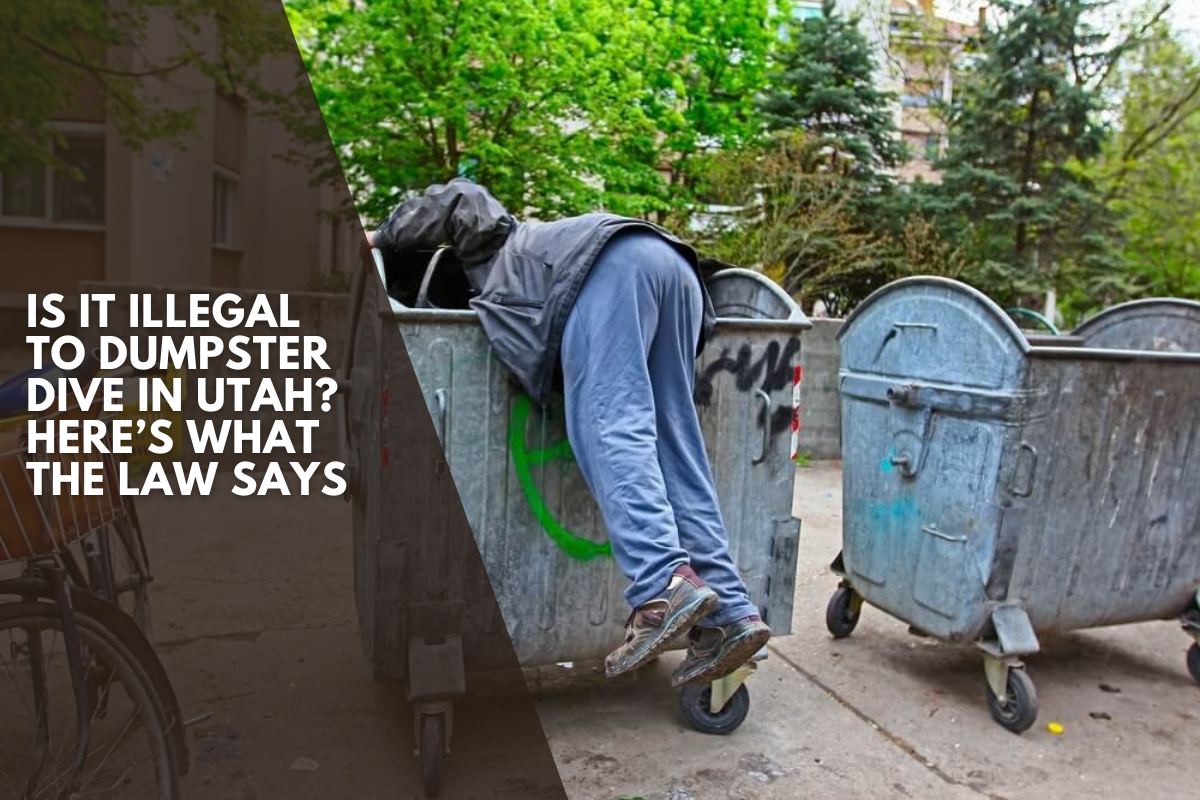Dumpster diving is generally not illegal statewide in Utah, but the legality depends largely on local ordinances and the specifics of the dumpster’s location. While Utah does not have a state law outright banning dumpster diving, some cities within the state, such as Layton and Orem, have passed ordinances that prohibit it.
The key legal issue arises when dumpster diving involves trespassing on private property, especially if the dumpster is on fenced or locked premises or marked with “No Trespassing” signs. Violating these rules can result in trespassing charges or other legal consequences.
What Is Dumpster Diving?
Dumpster diving refers to the act of searching through discarded items in dumpsters or trash bins, often with the intent to find useful or valuable goods. This practice has increased in popularity for various reasons, including environmental concerns, sustainable living, cost-saving, and the thrill of finding free items. However, despite its growing acceptance culturally, dumpster diving occupies a legal gray area that varies by location.
Legal Landscape in Utah
In Utah, dumpster diving is generally legal in public areas and where no trespassing restrictions are explicitly posted. However, local laws play a critical role. Cities like Layton and Orem have ordinances that outlaw dumpster diving, primarily to prevent trespassing and protect property owners.
In most other Utah cities, dumpster diving is tolerated or allowed as long as the diver does not violate trespassing laws or enter locked or fenced areas. This means that divers should avoid dumpsters located within private property bounds without permission.
Trespassing and Property Rights
The legality of dumpster diving hinges heavily on property rights. Most dumpsters are located on private property, and the property owner retains the right to restrict access. Even though discarded items may seem abandoned, the presence of fences, locks, or signs prohibiting entry makes access illegal without consent.
Entering such locations could lead to trespassing charges or fines. It’s also important to note that even if the dumpster is not locked or fenced, property owners can ask divers to leave, and failure to comply may escalate to legal action.
Legal Risks and Precautions
While dumpster diving itself is not a crime in many areas of Utah, other legal risks include disorderly conduct or littering, especially if divers disturb the area or leave a mess behind. Additionally, there might be differing rules if the collected items are intended for resale or if vehicles are used in the activity. Divers should always be cautious to avoid making disturbances and respect local laws.
Practical Advice for Dumpster Divers in Utah
Before diving, it is recommended to:
Check local ordinances in specific cities or counties.
Avoid dumpsters marked with no trespassing signs or located on private, locked, or fenced property.
Be respectful, quiet, and clean to avoid drawing attention or complaints.
Seek permission from property owners when possible to avoid legal complications.
By following these guidelines, dumpster divers in Utah can minimize the risk of legal trouble and enjoy the activity safely and responsibly.
In summary, dumpster diving in Utah is not illegal statewide, but local laws can prohibit it, especially in cities like Layton and Orem. Trespassing remains the primary legal concern, so awareness of location and local regulations is essential before engaging in dumpster diving.
Sources
(https://www.rolloffdumpsterdirect.com/dumpster-diving-illegal/)
(https://www.reddit.com/r/SaltLakeCity/comments/12np1je/dumpster_diving/)
(https://b921hits.com/?p=10947)
(https://www.reddit.com/r/DumpsterDiving/comments/fjxnl2/is_it_legal_to_dumpster_dive_in_utah/)
(https://www.theenvironmentalblog.org/2025/04/is-dumpster-diving-legal/)











